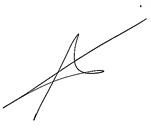THE TREASURE MAP (3rd PART): KNOWLEDGE

We live in a world where everything moves nonstop, where knowledge is growing on, where something new is out and worth knowing, because of the technological solution that offers us, or because it allows us to think and act better and more efficiently. It is therefore essential to keep up, to learn and be continuously trained, to understand, to visualize, to be as prepared as possible. Therefore it is important to apply the following principles to go search the treasure:
a) Will of learning, that is, never stop learning. Continuous training is essential: Read, learn, study, research, ask yourself. Philosophy, the more we know, the wider our point of view of the world and the opportunities we can see in it. We are like technology: he who does not update their knowledge, make their software be quickly outdated and is disconnected from reality. Would you work with a PC from the nineties today? Would you go out with a cell phone such as those heavy suitcases with a very limited autonomy and communication systems that are no longer useful? Would you even conceive that? For the person who, let’s say, graduated twenty years ago and has not keep on learning, is as outdated or more as what these above mentioned items.
b) Expert and differential knowledge. If you want to be relevant, you have to be different and to be different you have to look at the world and know it differently than the others. If you are different, you are important, people will see you and therefore you have a much better chance of being elected. Not only is much of what you know, but you know something nobody else knows. Aristotle Onassis said that “the secret to a great business is to know something nobody else knows”. That’s it.
c) Make error the best knowledge and make learning the greatest criticism. He who is not mistaken seems not to be acting and, therefore, he is not learning. Enough of taking errors as macules we live to hide, as sins that need absolution. One who makes no mistakes makes nothing. The smart thing is to learn from error to improve. Make mistakes, but draw up useful conclusions that allow you to know more than anyone about your business.
d) Acknowledge the ideas of your people. Keep in mind that 90 percent of the world’s innovation is not born of high investment costs in R&D, but the ideas and opinions of the company’s own employees. If you want to develop your knowledge to reach the treasure, listen to your people and think the smallest and simplest idea can revolutionize a business. Think, for example, that the post-it was the result of the perseverance of an engineer who wondered what to do with a glue that did not hit well… but it took him fourteen years to find a utility to a low quality glue.
e) Cultivate patience and perseverance in the willingness to learn and discover. They say Edison repeated the phrase: “People who say it can not be done should not interrupt those who are doing it”. And it’s true. On the one hand, specialized knowledge and differential knowledge that adds value require great perseverance and, secondly, a different view of reality. I always thought that what makes someone a genius is the ability to make obvious what was hidden though it was clear yet. That the earth revolves around the sun today is beyond doubt. Relativity is a fact. That blood circulates through our bodies, is too. Our genes and the primates’ have a lot in common, it is obvious (sometimes blatantly obvious). That memories and experiences of the past we can not recall because it is very painful and sometimes unbearable, is sadly evident… But Galileo, Newton, Servet, Darwin or Freud and many other geniuses of their time assume a lot of trouble defending their “truths” that were rejected and persecuted by their peers, in some cases, with extreme violence. Geniuses see reality in a different way. They use their brain to think, to create, always based on reliable and comparable data. Then they translate their findings into understandable language for everyone. It sounds easy, but this requires four things:
– Knowing how to think: having role models.
– Having good information: ask, observe, listen and ultimately help your senses.
– Venturing out of the known so far (it takes courage).
– And above all, risking to communicate it all.
But there is one more ingredient. In the biographies of Madame Curie, Thomas Edison, Albert Einstein, Santiago Ramon y Cajal, Antoni Gaudí, Sigmund Freud… we can see that the today considered geniuses persevered and worked hard in building their knowledge. And even if when we think of them it only comes to mind the cliches of their hits, remember that before these successes they only had… Failures! Trial and error, preparation, tenacity and strong faith in the outcome. The bright Giacomo Leopardi said that “Patience is one of the most heroic virtues, just because it lacks any resemblance with heroism”. How true! It is known that Edison made over a thousand attempts before achieving his first electric bulb (think about it slowly, a thousand attempts: one, two, three… ). When someone asked him how he was able to persevere in trying after so many failures, his response was strong, ironic and forceful: “Sorry to correct you. I have not failed even once. In fact, I now know a thousand ways how not to make a light bulb”. Very few are born geniuses. A creative genius often comes from perseverance, patience and expertise that very few humans are capable of achieving. Pablo Picasso made it very clear: “I do not know at what time inspiration and creativity may arrive… What I know is that I do everything possible so that when they arrive, they find me working”. To live “great opportunities” it is imperative for us to be persistent in trying to capitalize on the talents or skills we have and the excitement that comes when we make work the aim of our passion.
[This article and the previous ones are excerpts of the book “The Treasure Map”, written by Álex Rovira and Francesc Miralles, and published in Spanish by Editorial Conecta.]
Álex Rovira


Para dejar un comentario en cualquiera de los artículos del blog deberás identificarte con tu perfil de usuario de Facebook y podrás decidir si quieres que se publique en el Sitio Web y además en tu muro de Facebook. SID & FORTUNE, S.L.U. es la Responsable del Tratamiento de tus datos, con la finalidad de moderar y publicar tu comentario con tu nombre. En ningún caso se publicará tu correo electrónico.
Tienes derecho de acceso, rectificación, supresión, limitación, oposición al tratamiento y portabilidad. Puedes ejercitar tus derechos en [email protected]. Más información en la Política de privacidad.